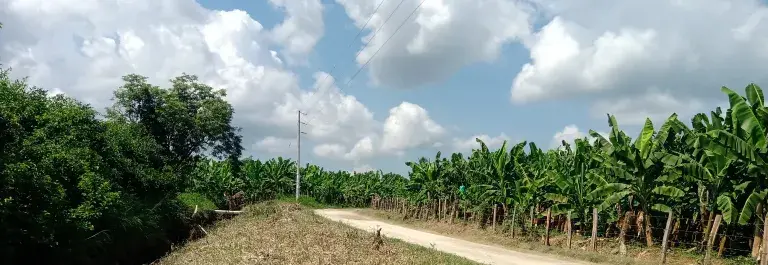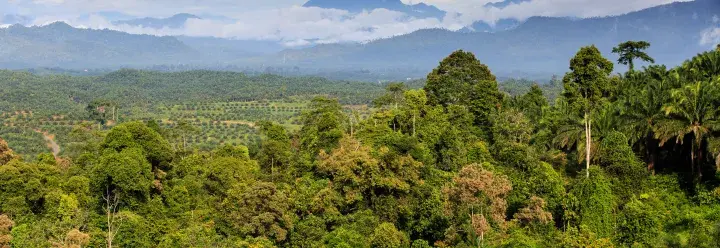Supporting landscape-wide impacts
As companies invest in scalable solutions for meeting sustainability commitments, many initiatives and standards are looking at how they can support landscape-wide transformation. ISEAL is helping to explore their potential contribution in this new space.
Landscape and jurisdictional approaches have attracted significant interest in recent years. This has been fuelled by companies looking to do more to improve the sustainability performance of their supply chains and structure investment in sourcing areas. Interest has also been generated by regions seeking to promote sustainable development within their own jurisdictions.
ISEAL has been active in this emergent space in several ways. We bring together leading initiatives and companies to define market expectations around landscape and jurisdictional approaches. We also directly support landscape and jurisdictional initiatives to strengthen their systems, including through partnerships in Brazil, Indonesia and Malaysia. And, we empower ISEAL members to innovate and test how their monitoring systems can capture sustainability data at scale, through the support of our Innovations Fund.
Applying measurement frameworks and systems beyond production unit level
Supported by the ISEAL Innovations Fund, our members are exploring how their systems can be applied beyond the site or production unit level. To achieve this they are engaging with multiple stakeholders at different stages of the production process to understand the most material sustainability issues.
For example, the Sustainable Agriculture Network is consulting local land users and community members to identify sustainability challenges and outcomes in the Zona Bananera region of Colombia. The result of its Blueprint for Sustainable Landscapes project will be an adaptable monitoring tool to verify agriculture’s contribution to a region’s sustainability. In another fund project in San Martin, Peru, Max Havelaar Switzerland and FLOCERT are developing a landscape assurance framework for social indicators.
Also, the Better Cotton Initiative, through its Adaptation to a Landscape Approach project, is exploring how the Better Cotton Standard’s performance monitoring system can be applied to a river basin area in Turkey. And, in Indonesia, the Alliance for Water Stewardship, is exploring potential gaps and opportunities between its good water stewardship guidance and LTKL’s (Lingkar Temu Kabupaten Lestari) jurisdictional regional competitiveness framework to support better water stewardship at a district level.
Defining expectations about actions, data and market claims
In 2020, we published a good practice guide on credible jurisdictional claims. The guide proposes a claims typology for jurisdictional actors and supporting actors, and highlights the structures and processes that should underpin their claims.
The guidance recognises that setting up an initiative with robust systems and governance can itself be an outcome worth making claims about, alongside performance outcomes that relate to measurable results on key issues like deforestation and livelihoods. Importantly, it also identifies supporting actions companies, investors and other market-based actors might make.
The guide, and our work engaging with jurisdictional initiatives, highlights the need for transparency and accuracy in the claims that these initiatives and companies make based on the data available; as well as a clear understanding of how claims should be proportionate to the level of investment and engagement.
We are convening leading organisations, initiatives and companies to ensure clarity on these points. This in turn should drive improvement in the operational effectiveness and performance of jurisdictional initiatives, and channel investment to support lasting change.
Join the discussion
Our global dialogue on jurisdictional and landscape approaches will continue this year, supported by partnerships with key jurisdictional initiatives and informed by insights from the fund’s suite of projects.
Building on last year’s consultation on jurisdictional claims, we will open a discussion with a range of experts, implementing organisations and corporate and civil society actors, to explore new ways of thinking about supply chain sustainability and the potential of landscape and jurisdictional approaches.
To learn more about our work click here.
To join the discussion, contact us at landscapes@isealalliance.org



